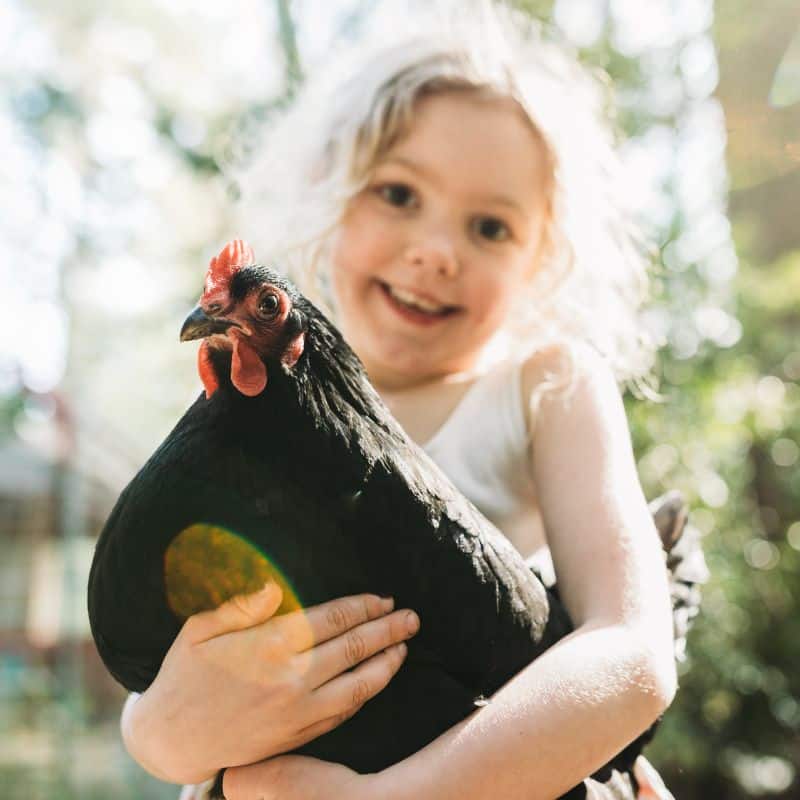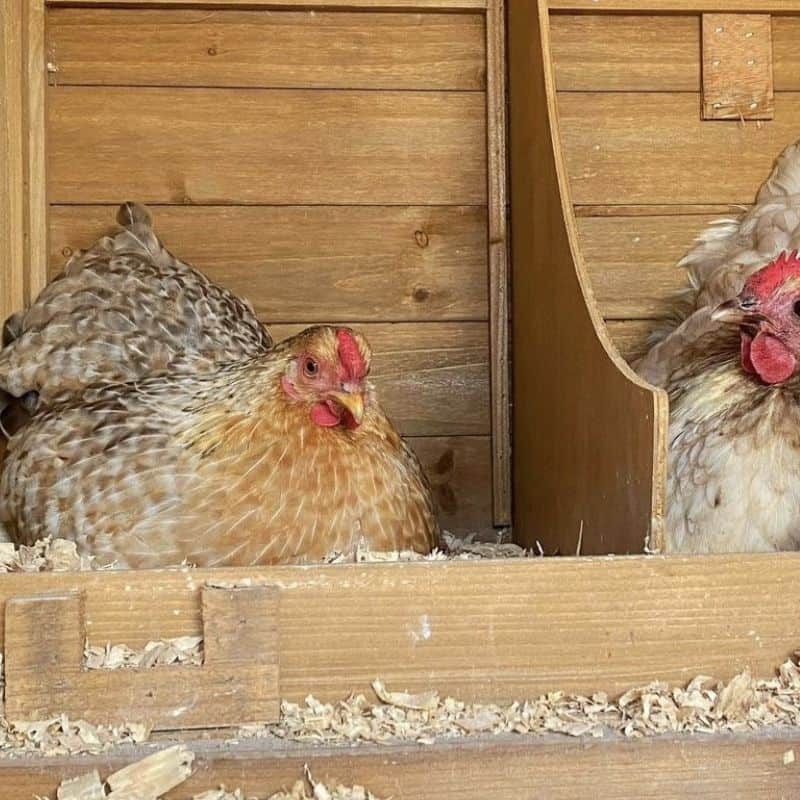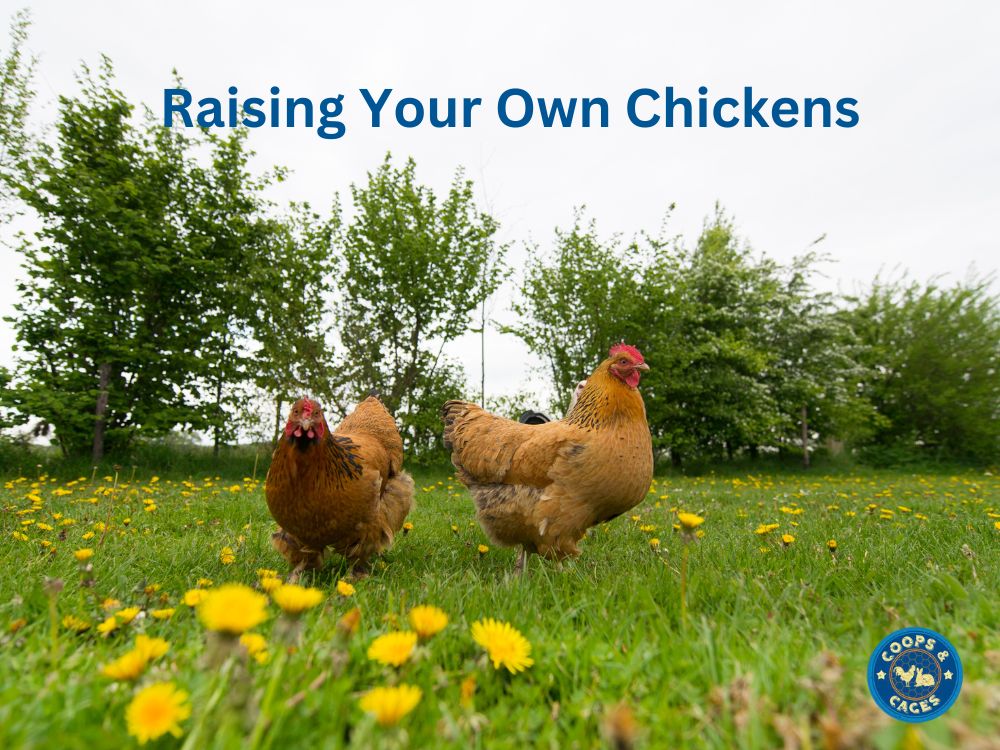Chickens
Raising Your Own Chickens
Welcome to the world of backyard chicken keeping! It’s a rewarding journey filled with the delights of fresh eggs, the satisfaction of raising your own broilers, and the fun of showcasing rare breeds at local shows and fairs.
With a diverse flock, you’ll enjoy a kaleidoscope of colours and personalities, whether it’s the elegance of Wyandottes, the robust nature of Australorps, or the quirky charm of Silkies.
Get ready to experience the joy of tending to your feathered friends and creating your own little haven in your backyard.
Planning Your First Flock of Chickens
Before diving in, think about what you want to achieve. Are you craving a daily supply of fresh eggs or considering raising your own meat?
Maybe you’re eager to introduce your children to the joys of pet ownership and responsibility. Or perhaps you’re drawn to the idea of nurturing rare breeds or showcasing your feathered friends.
Don’t forget to research local council regulations, ensuring you’re in compliance with rules governing chicken ownership. These may concern flock size, noise, how close the coop can be to your fence, vermin control, and if you are allowed roosters in urban areas.
It’s also a good idea to touch base with your neighbours to ensure they’re on board with your new feathered companions.

Choosing a Chicken Breed
When it comes to selecting your first pet chickens, consider your goals and preferences. Generally, you’ll find three primary categories to choose from: egg layers, meat producers, and pets.
Each type has its own unique care requirements and characteristics, so let’s delve into each category to help you make an informed decision.
Choosing Chickens for Egg Production
If you’re primarily interested in a fresh egg supply, certain breeds excel in this department. Consider breeds like ISA Browns and Australorps, renowned for their prolific egg-laying capabilities.
Egg-laying hens can produce between 200-300 eggs per year, usually taking a break from laying during colder months or when their feathers are moulting.
Choosing Chickens for Meat Production
If you’re looking to raise chickens for meat, consider breeds tailored for rapid growth and substantial meat production. One example is the Cornish Cross, a popular choice among poultry enthusiasts for its exceptional meat yield and fast growth rate.
These birds, often referred to as broilers, are prized for their ability to reach a weight of around 2.5kg within just six weeks. By four months, they can achieve a roaster size, making them an ideal choice for those seeking a meat-centric flock.
Choosing Chickens as Pets
When selecting chickens as pets, especially for families with children, it’s important to choose breeds known for their friendly demeanour and tolerance of handling.
Look for breeds that enjoy human interaction and are happy to be held and petted by little hands. The Silkie, known for its docile nature and fluffy appearance, is a favourite among children.
Another excellent choice is the Australorp, a gentle and sociable breed that thrives in family environments.
Housing Your Chickens
You will need to provide your backyard chickens with a coop, giving them a safe place to sleep at night. A good chicken coop will include roosting poles (for sleeping), nesting boxes (for laying eggs), and protection from both predators and inclement weather.
Some owners will let their flock out to roam free in their yard each day. Alternatively, you may choose to add a wire run onto your coop.
This is a protected outdoor area where your flock can roam during the daytime without the risk of them wandering too far or being attacked by predators.
Typically, each hen needs a minimum of 20cm of perch space and one square metre of run space. But the more room you can give them, the happier they are!
As you plan the location for your coop within your yard, choose a flat and well-drained area. Proper drainage helps prevent water accumulation, which can lead to muddy conditions and potential health issues for your birds.
Additionally, consider the coop’s orientation to maximise natural light exposure while minimising direct exposure to harsh weather elements.
Regular maintenance and upkeep of the coop is crucial for ensuring a clean and healthy environment for your chickens. Weekly cleaning helps prevent the buildup of waste, reducing the risk of disease and promoting overall flock health. Additionally, periodic inspections allow you to identify and address any structural issues or potential hazards promptly.

Chicken Feeders and Drinkers
When it comes to selecting feeders and drinkers for your chickens, there’s a wide array of options available on the market. These come in various designs, typically crafted from galvanised metal or durable plastic.
Treadle chicken feeders stand out as an excellent choice for feeders, as they effectively keep rats and mice out of the food supply, maintaining cleanliness and minimising wastage.
Plastic bell-shaped drinkers are highly recommended for providing clean water to your flock, ensuring optimal hydration without the risk of contamination and with minimal spillage.
When it comes to feeding your chickens, it’s essential to provide a balanced diet that meets their nutritional needs. A typical diet for laying hens includes a combination of commercial layer pellets, supplemented occasional treats such as tinned corn, vegetable scraps or dried mealworms.




I live in an apartment and own 4 caged’ frerets though I do let them out to run around with supervision often. When we were moving back to the area we live in I had notified the landlord that at that time I had owned 2 frerets and they allows us to keep them and move in but we did still have to pay a pet deposit on them and they also worked out a deal for the cost of the deposit. All you can do is ask.